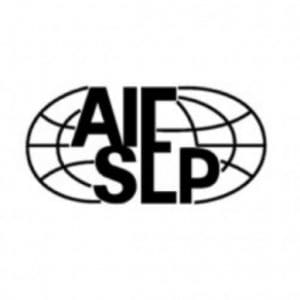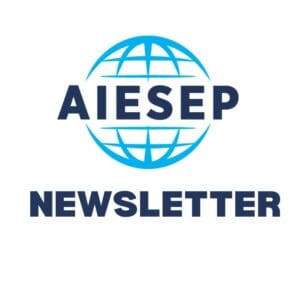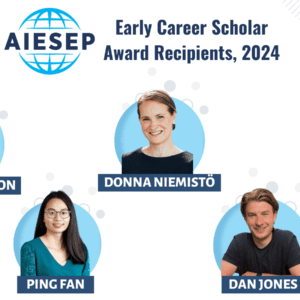In this blog post, I would like to introduce an ongoing three years project (2.5 years completed) about the professional development of physical education (PE) teachers in Turkey, which was funded by Scientific and Technological Research Council of Turkey. This project is guided under the supervision of Dr. Mustafa Levent Ince (Middle East Technical University). The project team members are Dr. Deniz Hunuk (Pamukkale University), Dr. Yuksel Savucu (Fırat University), Dr. Mehmet Yanik (Balıkesir University), Dr. Mehmet Ata Ozturk (Middle East Technical University), Dr. Deborah Tannehill (University of Limerick), and Dr. Philip Ward (The Ohio State University).
Literature has highlighted the importance of the community of practice (CoP) framework as an effective professional development strategy (sources to support). The CoP is described as an informal way of providing professional development, where teachers regularly meet for engagement, share common professional interests, and mutually learn from others’ experiences. In a Turkish study (Hunuk et al., 2013), the CoP framework was successfully undertaken in collaboration with the Ministry of National Education (MoNE), Local and Central MoNE Departments of In-Service Training, and local schools. Results indicated sharp increases in teachers’ and students’ learning. The current project aims to determine and develop related content knowledge for teachers and disseminate such through a CoP framework into broader settings. In addition, the project intends to develop the socio-ecological setting (teacher and teacher educator characteristics, social and physical setting, and related policy) to ensure the sustainability of CoP. Two research questions guided this research project: (1) How can CoP be experienced effectively with university-MoNE collaboration in a provincial socio-ecologic environment? (2) Understand the effects of a CoP on teachers’ and their students’ level of content knowledge by examining students’ achievement of the learning outcomes stated in the PE and Sport Curriculum.
In this project, three provinces in Turkey (from east, west, and central) were chosen as project locations. In these provinces the following activities took place; (1) A comprehensive needs analysis of secondary school PE teachers’ content and pedagogical content knowledge was applied, (2) Technology-enhanced synchronous and asynchronous education/information support service was developed for teachers, 3) Facilitators (among experienced teachers) were selected and trained to work in each province, (4) 14 CoP were set up and facilitated over six weeks, and (5) An impact analysis of CoP teachers’ and their students’ learning was undertaken.
For the need analysis, 390 PE teachers working in three provinces of the country voluntarily participated (Hunuk et al., 2018). Six specific areas of teacher need were identified, including knowledge of the national curriculum, how to design instructional aligned lessons/curricula, PE curriculum models and teaching methods, measurement and evaluation, inclusive practice, and career development. Based on teachers’ needs, the technology-enhanced learning management system was opened for the use of CoP participants (Ince et al., 2019). Five to six teacher facilitators from each province (16 in total) were selected and trained as CoP facilitators. Fourteen of the facilitators created and applied their CoP with four to seven PE teachers in each (20-32 teachers in each province for a total of 81 teachers). Approximately every teacher’s 20 secondary school students’ (more than 1200 students in total) PE learning before and after the CoP was followed. Both qualitative and quantitative research methodologies were used to analyse the results. Data is currently being collected through questionnaires from teachers (for the needs analysis) and students, individual and focus group interviews with teachers, video records of the meetings and field notes of the researchers. Data collection is in its final phase. Preliminary findings suggested that when teachers trained as facilitator, they can successfully take the responsibility to facilitate their learning communities in which participant-teachers involvement enhanced. Also, technology-integrated professional development opportunities increase teachers’ motivation, content and pedagogical content knowledge. We are excited to discuss this project and share insights we have gained to this point. As results are finalised we look forward to sharing them at future scientific AIESEP events. For further information or to discuss this project, please email us or follow our twitter account as below.
E-mail: dehunuk@gmail.com
Twitter account of the project: @service_pe (PE learning communities in Turkey)
References: Ince, M. L; Hunuk, D.; Tannehill, D.; Ozturk, M. A.; Yanık, M & Savucu, Y. (2019) Designing a need-based learning management system for supporting teacher learning communities. AIESEP, Adelphi, NY, USA, 19-22 June.
Hunuk D., Ozturk M. A, Yanık M., Savucu Y. & Ince M, M. L. (2018) Physical Education Teachers’ Perceived Competence about Knowledge and Teaching on Key Qualifications: Fact or Fiction. AIESEP Specialist Seminar, Eindhoven, Netherlands, 18-20 October.



